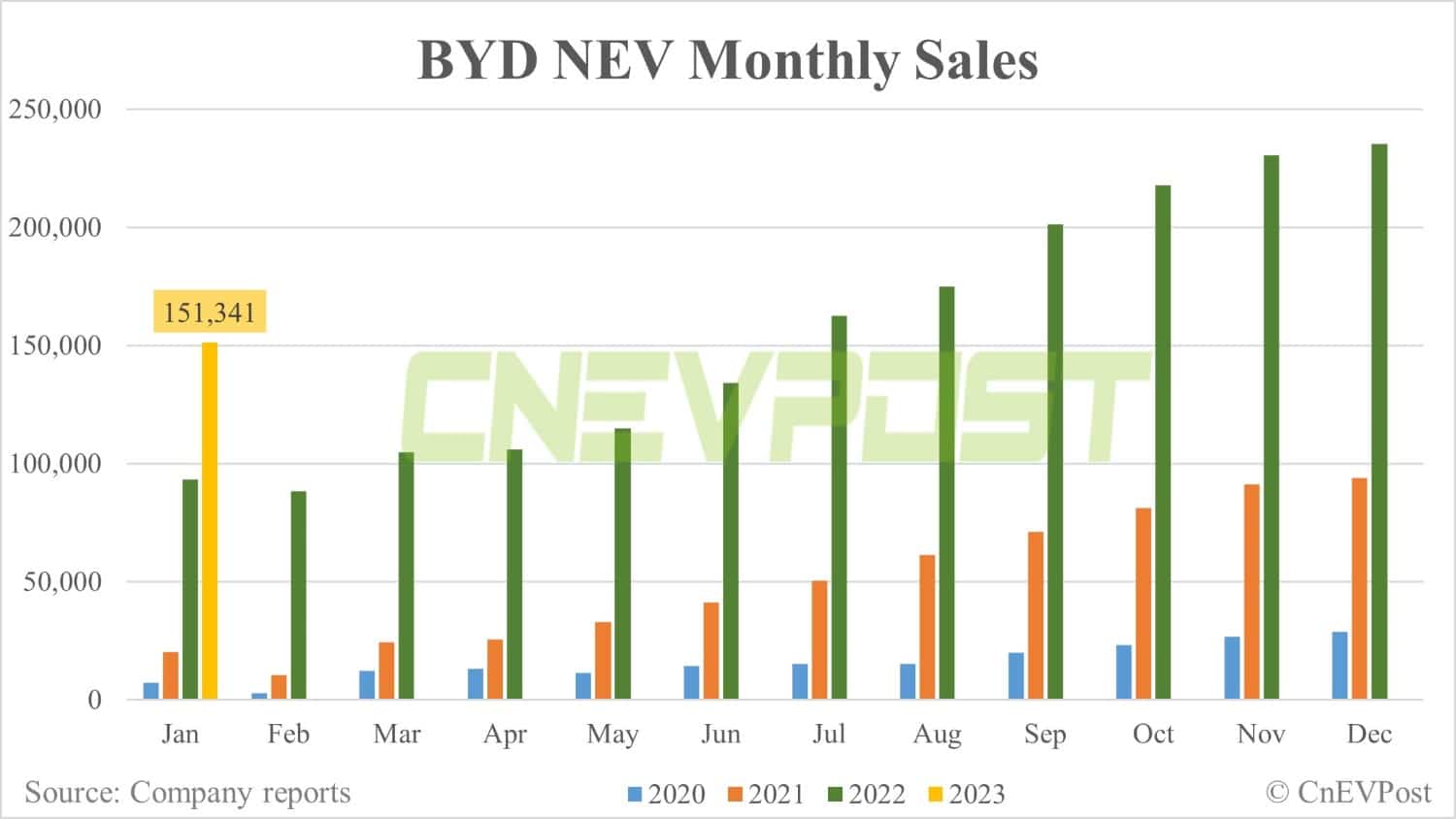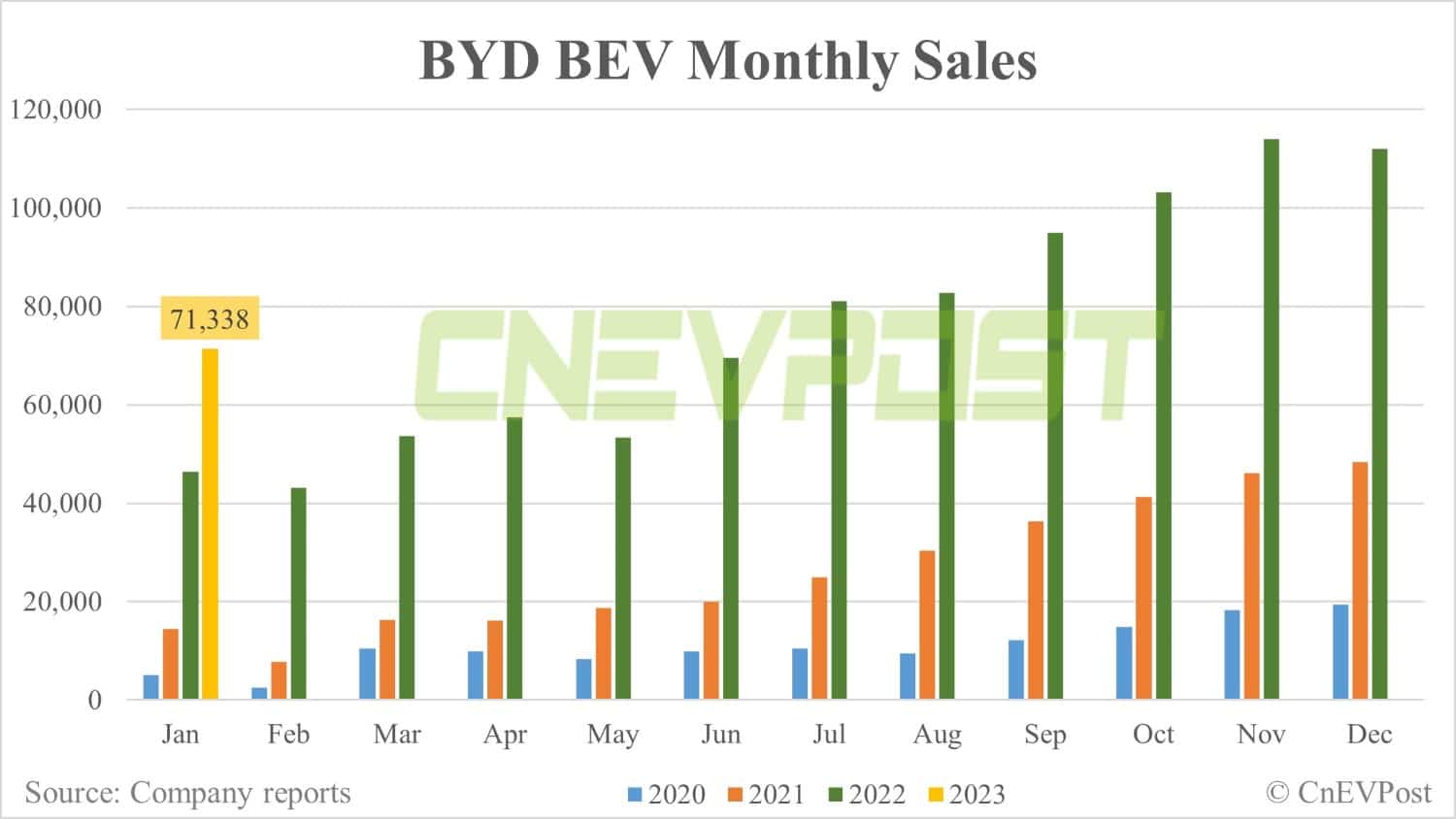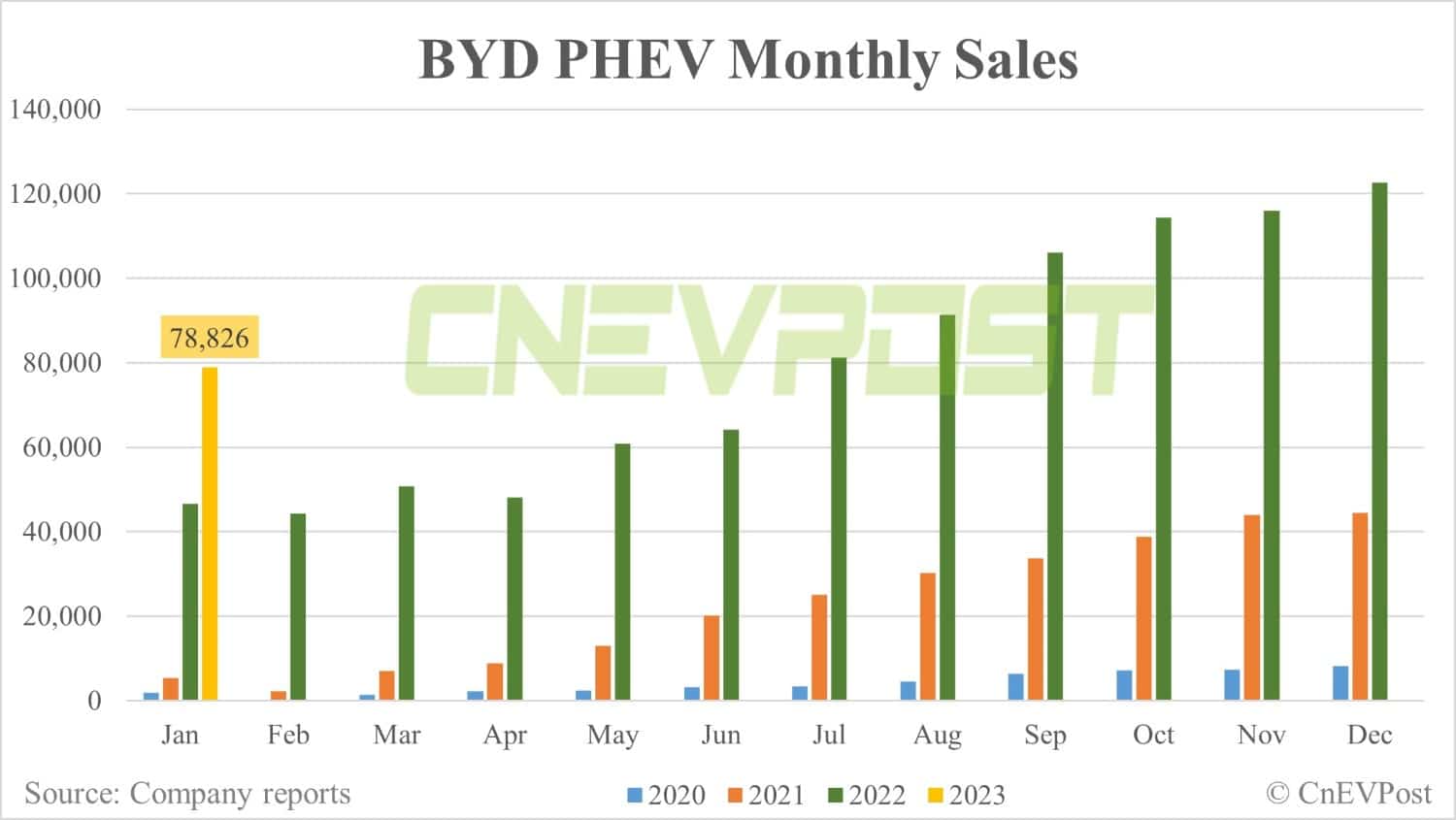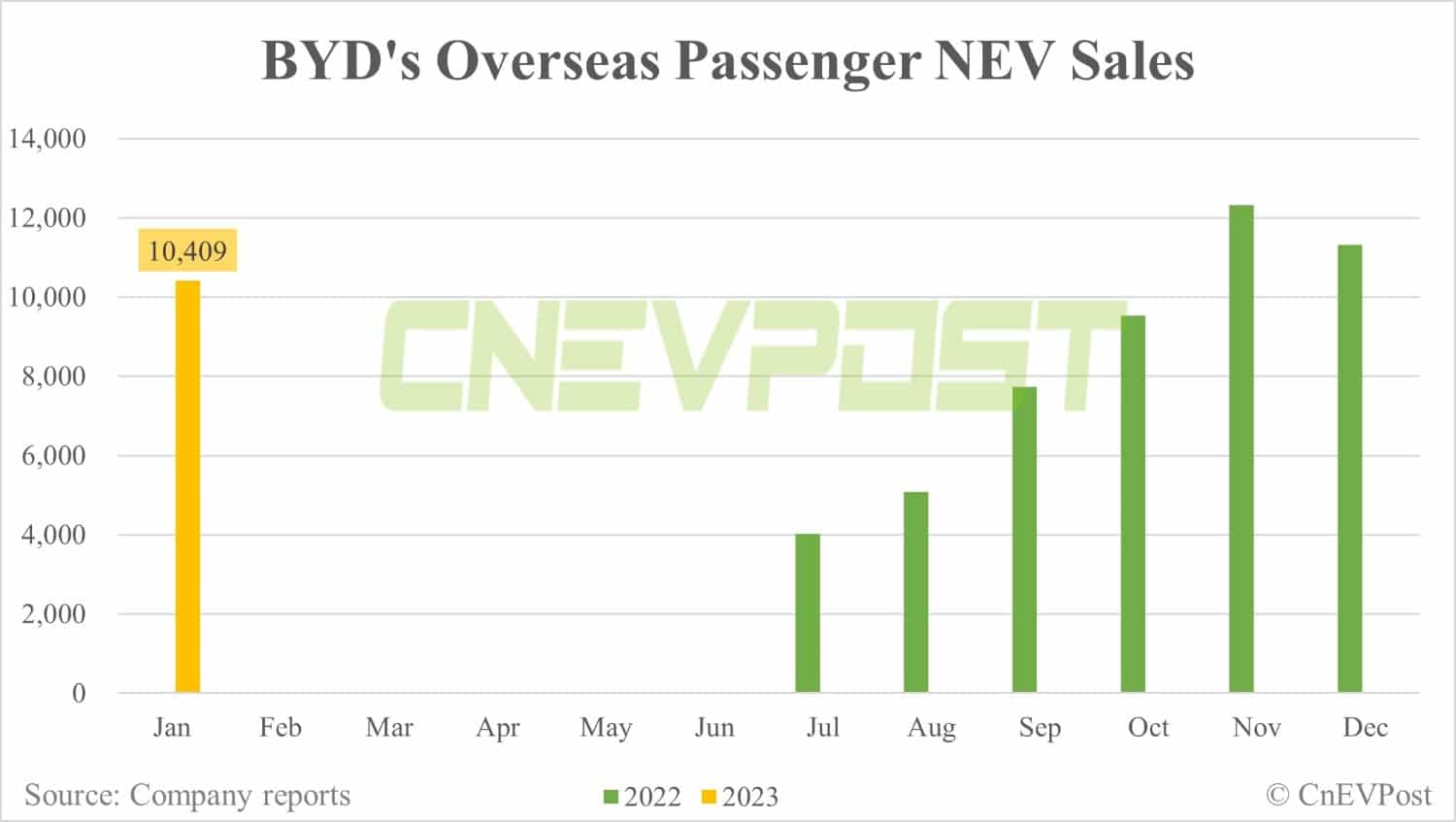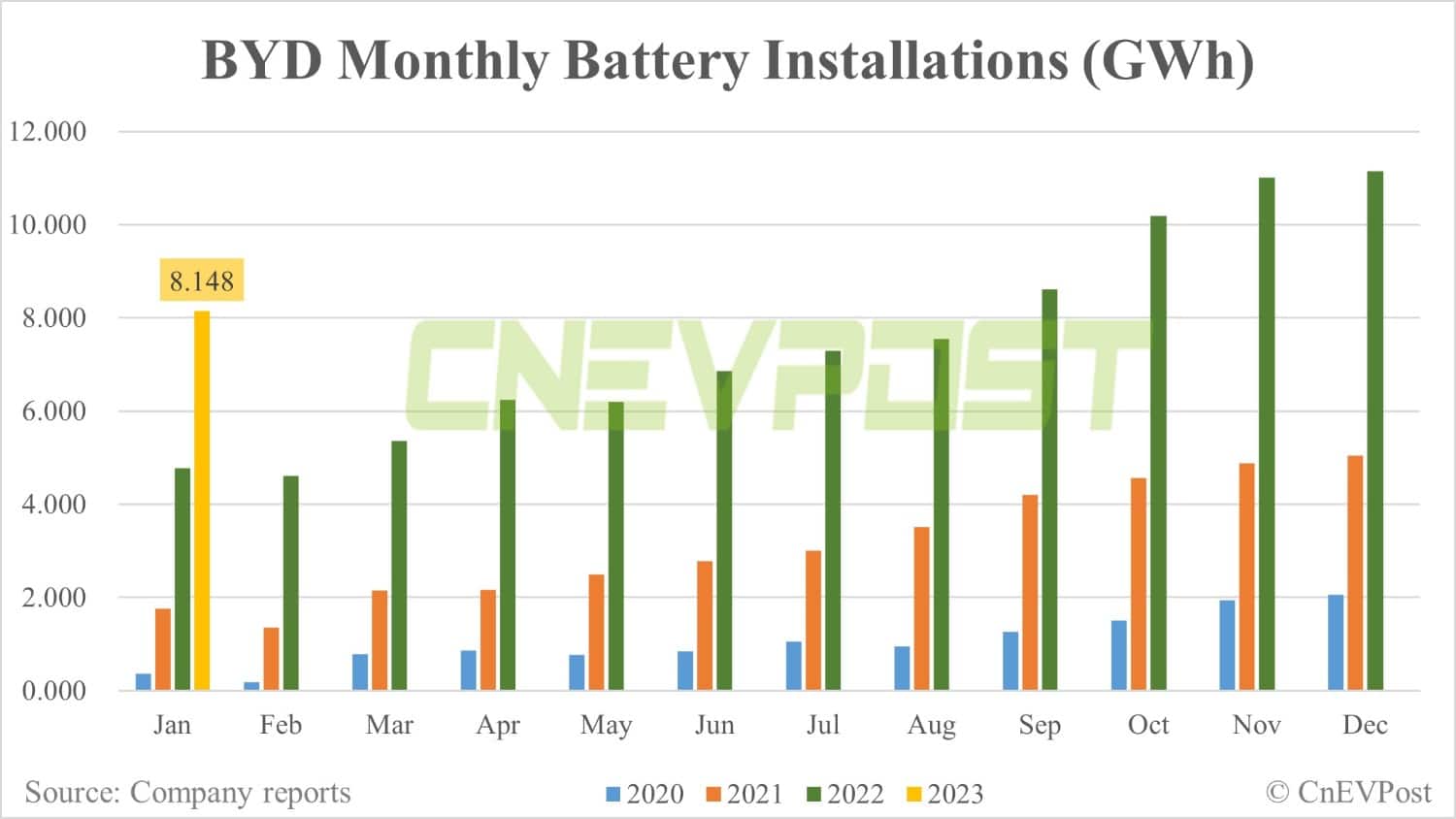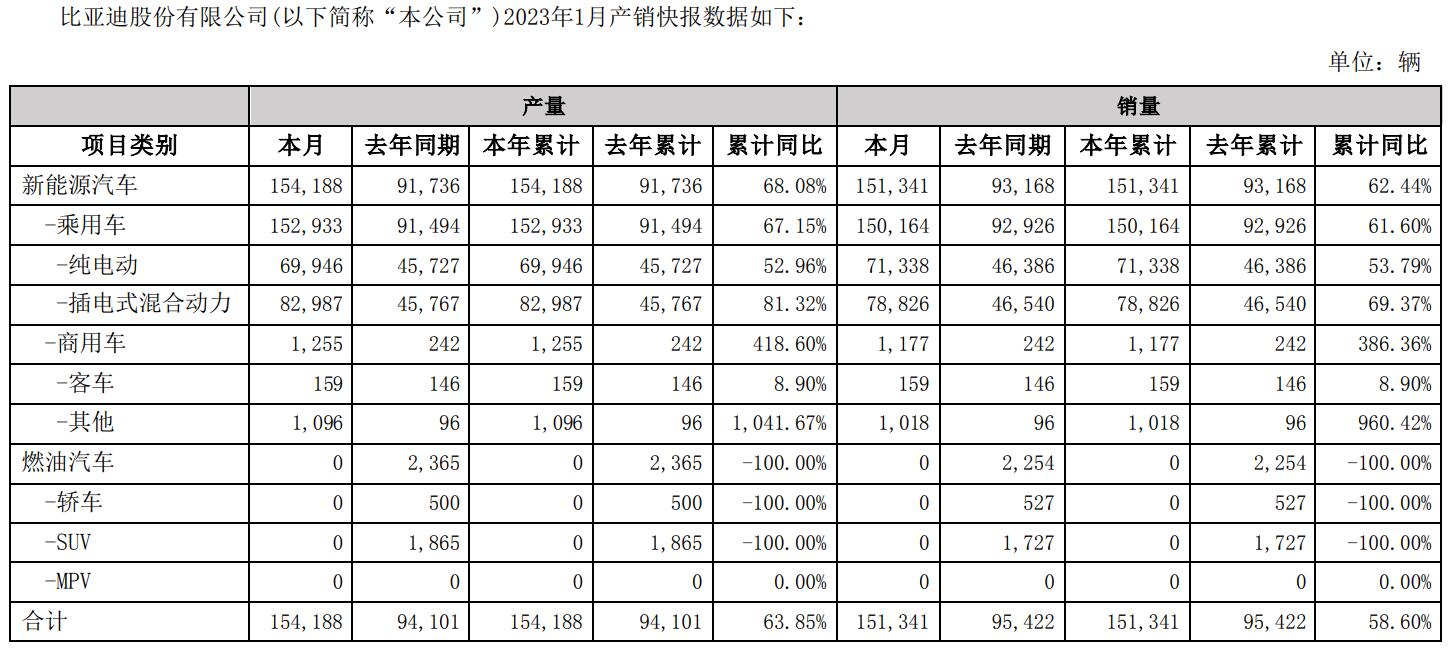BYD's NEV sales ended a 10-month streak of growth, as the Chinese New Year holiday took its toll on sales.
BYD's (OTCMKTS: BYDDY) new energy vehicle (NEV) sales fell to 151,341 units in January, ending a 10-month streak of growth, as the Chinese New Year holiday took its toll on sales.
The NEV maker disclosed the figure in a Shenzhen Stock Exchange announcement today, which was up 62.44 percent from 93,168 units a year ago but down 35.65 percent from 235,197 units in December.
BYD stopped producing and selling vehicles powered entirely by internal combustion engines in March 2022, and all its vehicles are now NEVs, including passenger cars as well as commercial vehicles, and they sold 150,164 units and 1,177 units in January, respectively.
Among these passenger vehicles, sales of battery electric vehicles (BEVs) were 71,338 units, up 53.79 percent from 46,386 units in the same month last year, but down 36.27 percent from December.
Plug-in hybrids (PHEVs) were 78,826 units, up 69.37 percent from 46,540 units a year ago, but down 35.74 percent from December.
In January, BYD sold 10,409 NEVs in overseas markets, down 8.05 percent from 11,320 units in December. The company first announced overseas sales figures for NEVs in July 2022.
In addition to being the largest NEV company in China, BYD is also the second-largest power battery manufacturer in the country.
BYD's installed power and energy storage battery capacity in January was about 8.148 GWh, up 70.82 percent from 4.770 GWh in the same month last year, but down 26.94 percent from 11.152 GWh in December.
